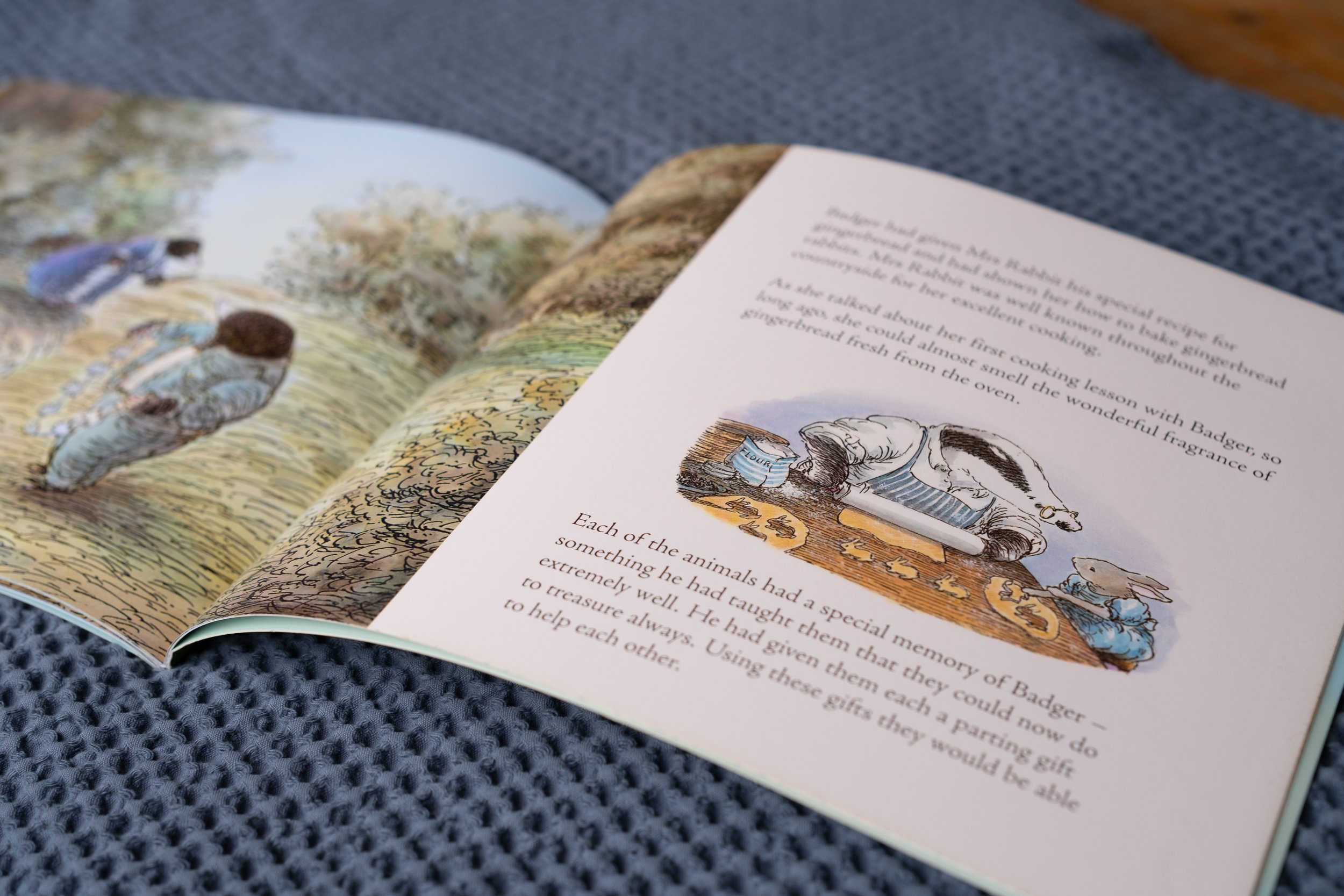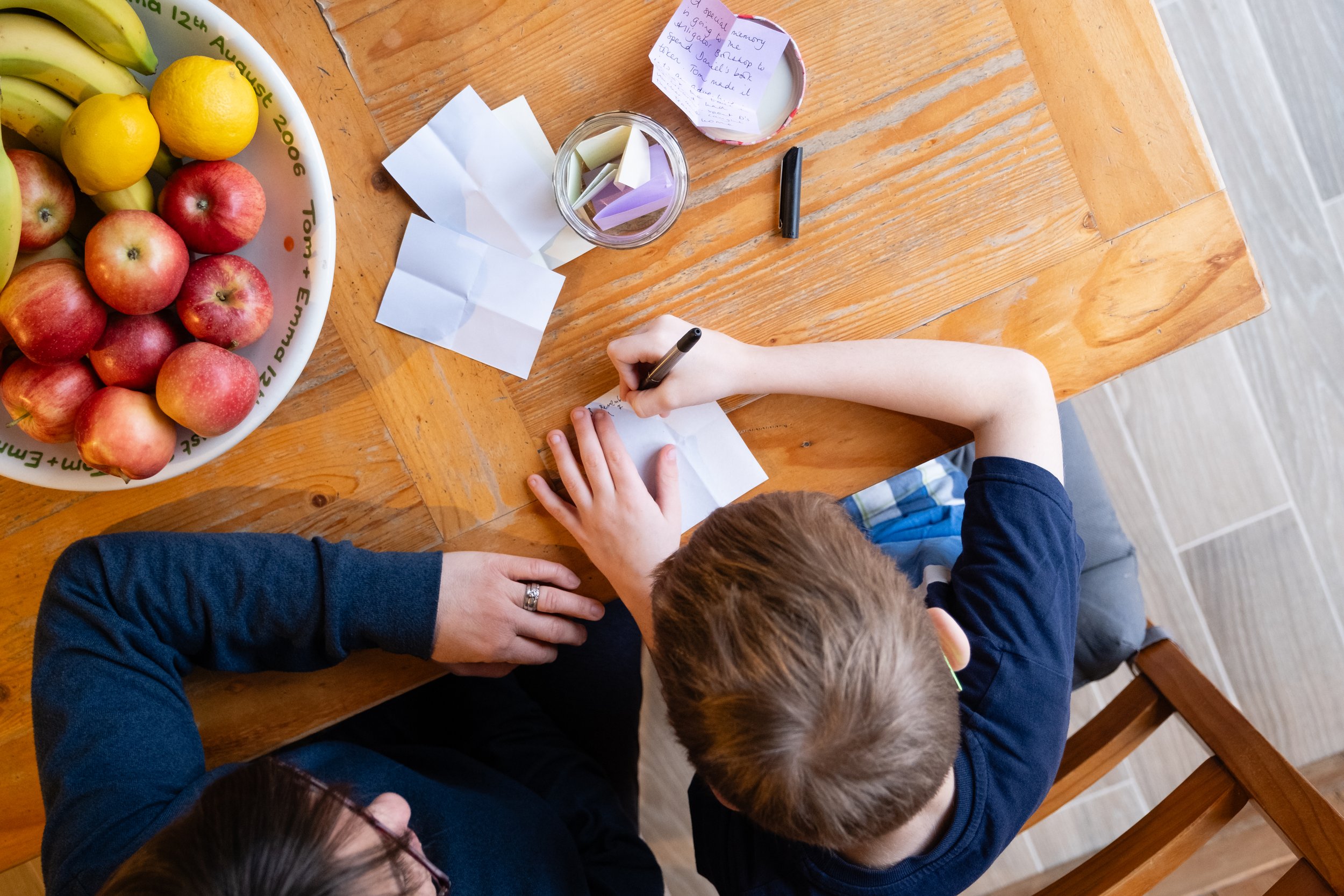
badger’s parting gifts by susan varley
Look at the cover of this book with the children and search for clues that hint at what the story might be about. Most children will notice that Badger looks old (with a walking stick and glasses), and the word “parting” in the title may suggest that he’s facing the end of his life. Make sure the children feel comfortable exploring this book with you, and let them know that today’s session will create a safe space for open conversations and for sharing feelings about love, loss, and grief.
support note:
On the first page of this book, we learn that Badger is ‘very old’ and that he knows ‘he must soon die’. It’s important to make sure the children in the group who have experienced the loss of a loved one feel comfortable discussing the death of someone who is elderly and who had time to prepare their loved ones. Children whose parent or sibling died at a young age may want to talk about how, sometimes, death doesn’t follow the natural order of things.
You may also want to consider the phrase ‘parting gift’. Badger taught his friends skills – things he could do before they could – and these teachings became his ‘gift’ to them. This is a gift in the sense of passing on knowledge or skills, much like what a parent/carer, grandparent, or an older sibling might do. The ‘parting gift’ is the gift of what has been learned, and it may not necessarily be something given because the person knew they would soon die.
Be mindful that children bereaved at a young age might not have had the opportunity to learn something directly from their loved one or may not remember it. If appropriate, the ‘gifts’ they might share could include physical traits such as the same colour hair or eyes as their loved one, or a shared love for a hobby like reading, drawing, or sports.
Key Questions:
Can you list the special memories the friends share about Badger?
Can you think of something your loved one taught you how to do?
The author tells us that Badger gave each of his friends a ‘parting gift to treasure always.’ What do you think of this idea?
Can you think of any other ‘parting gifts’ your loved one has given you?

Activity: Making a parting gifts box or jar
Each child will need an empty box or jar (a clean jam jar works well), several small pieces of paper, and pens. Include a variety of craft supplies to personalise each box or jar. Giving children time to decorate after the writing task encourages them to chat with each other, share memories of their loved ones, and reflect on the special parting gifts they’ve received.
Give each child a piece of paper to write or draw something their loved one taught them how to do. They can then fold it carefully and place it into their box or jar.
Repeat this activity as many times as each child wishes, adding new ‘parting gifts’ with each round. Some children may want to expand on these memories, recalling the first time they learned how to do something with their loved one. Other children may need prompts to help them remember what they did together. Encourage them to think about skills they can do now, at their current age, that they once had to learn when they were younger.
Finally, spend time decorating the boxes or jars and talking about the special memories each child holds of their loved ones, and the special parting gifts they have received.
closing the session:
Recap the story by reminding the children that Badger gave each of his friends a different parting gift, each one special to the individual. Ask the children if any of them have made paper chains like Badger taught Mole, or if they can ice skate like Badger taught Frog? Who taught them these things? How about knotting a tie like Badger taught Fox? Have any of them baked gingerbread like Badger taught Mrs Rabbit?
Then, remind the children of the sentence on the last page of the book: “Whenever Badger’s name was mentioned, someone remembered another story that made them all smile.” Reassure the children that even when we grieve the death of someone special and feel sad about them no longer being with us, we can still talk about the special memories and the things that we did with them when they were alive. These memories are our parting gifts, and they are ours to keep and cherish.
If appropriate, invite the children to share some of their own parting gifts from their special boxes or jars. Encourage them to share their work with their family at home.
